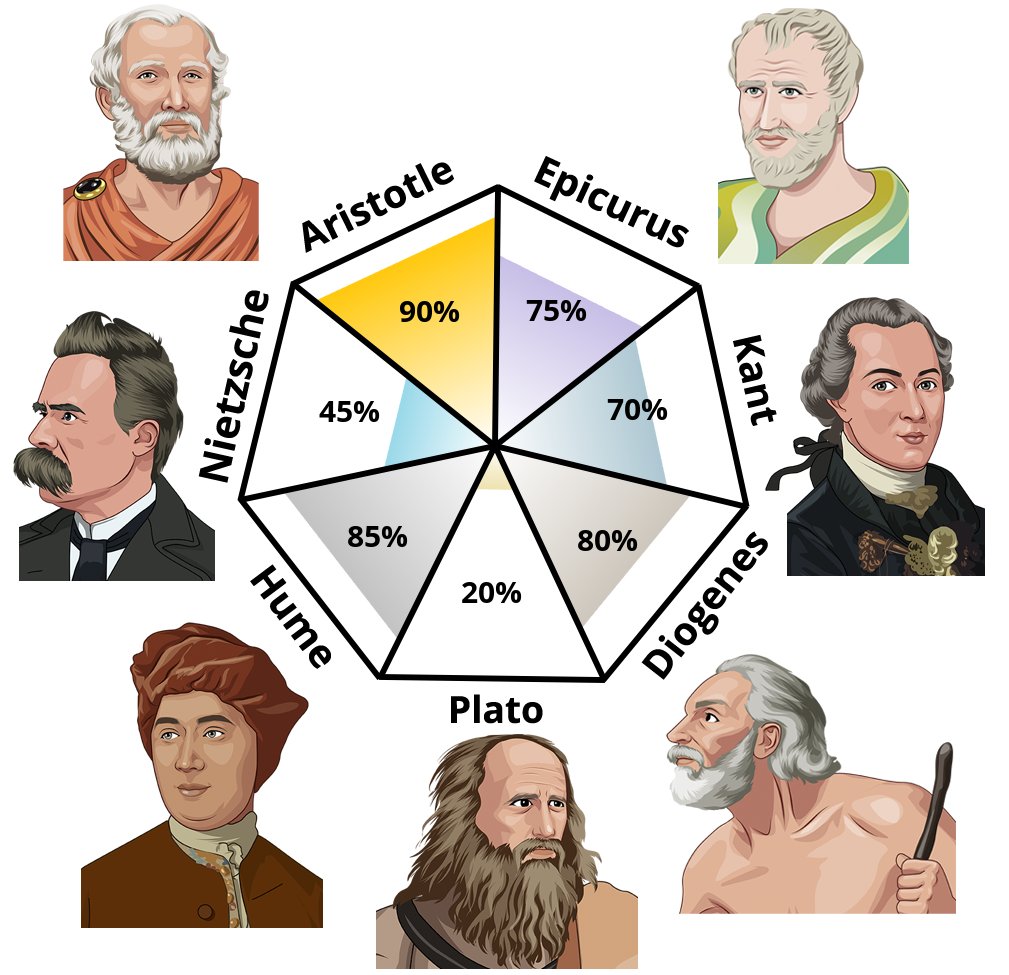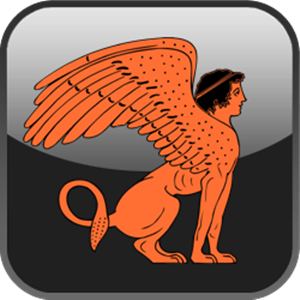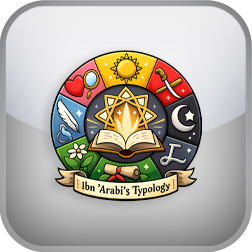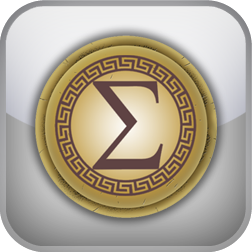Philosopher Personality Test
You are here because one of your friends linked you to their Philosopher Personality Test result:
Take the TestResults:

Your friend's traits are closest to those of Aristotle.
Take the TestAristotle: Aristotle was, above all, motivated by the desire to know, a quest he accomplished by gathering data on everything from animals and plants to political constitutions and theatre plays. With an engineer-like or scientist’s mind, Aristotle quickly saw the patterns in the data, grouping everything by commonalities, properties, and overall structure. Using unsentimental rationality, Aristotle also applied these principles to humans, classifying them by temperament, gender, race, and various other properties with a level-headed shrewdness that caused his observations to be read and celebrated throughout the ages. As for happiness, Aristotle believed that it is best attained by doing what comes naturally to us and doing it well; in other words, to fulfill one’s purpose and become a paragon of human excellence.
References
- Durant, W. (1926). The story of philosophy: The lives and opinions of the great philosophers. Simon and Schuster.
- Hergenhahn, B.R. (2009). An introduction to the history of Psychology. Wadsworth Cengage Learning.
- Norton, D. (2011). David Hume: A treatise of human nature. Oxford University Press.
Take Next
GET THE FULL STORY
Become a lifetime member with a one-time payment
WHAT YOU GET
Access to members-only tests
Ability to track and save test results
Access to all of our eBooks (value $44.94)
Access to premium type assessments and infographics
Become a memberGET THE FULL STORY
Parmenides Priest of Apollo
WHAT YOU GET
Comprehensive study of Parmenides’ fragments 2-8, offering an in-depth exploration of his metaphysical philosophy, the nature of being, the way of truth, and the way of seeming, presented in a clear style with connections to ancient and modern philosophical traditions.
Authoritative analysis grounded in canonical translations and enriched with references to scholarly works, providing a robust interpretation of Parmenides’ enigmatic poem, ideal for students, philosophers, and enthusiasts of Pre-Socratic thought.
Unique initiatory perspective framing the poem as a sacred rite aligned with Apollonian mysteries, complete with a chantable rendition of fragments 2-8, designed to evoke the oral tradition of Parmenides’ time and deepen metaphysical understanding.
14-day, no-questions-asked, money-back guarantee.
Order NowSave and monitor your results over time
Become a member today
Sign Up











